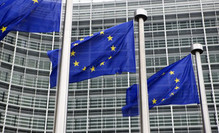
The verdict, published this morning by the Strasbourg court, concluded that Article 8 of the Convention on Human Rights did not require a legally binding pre-notification requirement.
"Therefore, its absence in UK law had not breached Article 8," the court upheld unanimously.
Mosley, a former president of the motor racing body the FIA, pursued his campaign for prior notification after being awarded damages in 2008 following publication of an article by the News of the World which he claimed breached his privacy.
Mosley was calling on the European Court to rule that the government should introduce a legal duty on newspapers to notify the subjects of intended publications in advance, to give them an opportunity to prevent publication by seeking an injunction.
Speaking on Radio 4's Today programme before the judgement, Mosley said once an article is published it cannot be taken "out of the public mind".
"And worse than that, under the English legal system, if you sue, once the thing's out, you recover damages, if you win, you get your costs awarded, again if you win.
"But the costs and the damages are less than the bill from your solicitor, so you get the whole publicity repeated again in open court, on top of which you get a very large bill. Well that's not a remedy and there should be a remedy under the Human Rights Act."
In today's judgement the court was said to hold the view that the concept of private life was "sufficiently well understood for newspapers and reporters to be able to identify when a publication could infringe the right to respect for private life".
Any pre-notification obligation would, it added, have to allow for an exception if public interest was at stake, the court added, and therefore a newspaper could decide not to notify an individual if it believed that it could defend its decision.
"Thus, in the applicant’s own case, it is not unlikely that even had a legally binding pre-notification requirement been in place at the relevant time, the News of the World would have chosen not to notify in any event, relying at that time on a public interest exception to justify publication.
"Second, and more importantly, any pre-notification requirement would only be as strong as the sanctions imposed for failing to observe it. A regulatory or civil fine, unless set at a punitively high level, would be unlikely to deter newspapers from publishing private material without pre-notification. In the applicant’s case, there is no doubt that one of the main reasons, if not the only reason, for failing to seek his comments was to avoid the possibility of an injunction being sought and granted."
The court added that the threat of criminal sanctions or punitive fines would also "create a chilling effect which would be felt in the spheres of political reporting and investigative journalism".
Journalism.co.uk has not yet received a response from the lawyers representing Mosley for comment.
In a statement a spokesperson for the Ministry of Justice said it was pleased with the judgement and believes the court made the right decision.
"The government recognises the importance of finding the right balance between individual rights to privacy on the one hand with rights to freedom of expression and transparency of official information on the other."
In a press release John Kampfner, chief executive of Index on Censorship, said the organisation was also pleased with the decision.
"The issue at stake here was not the sex lives of celebrities. Serious investigative journalism would have suffered. We are pleased that the court acknowledged that Mr Mosley’s move would have inflicted a significant chilling effect on the media."
Journalism.co.uk spoke to Mosley about the issue at a privacy debate organised by Intelligence Squared last year. Hear our jpod following the interview at this link.
Free daily newsletter
If you like our news and feature articles, you can sign up to receive our free daily (Mon-Fri) email newsletter (mobile friendly).
Related articles
- Newsrewired throwback: What you learned at our previous digital journalism conference
- Three steps to protect newsrooms from press freedom attacks
- What journalists can do to prevent and fight SLAPPs
- First-party cookies: 'Get legal help to avoid fines'
- Collecting first party data: Why meaningful consent should matter to publishers











